South Sudan’s government announces unilateral ceasefire during national dialogue
South Sudanese President Salva Kiir formally launched a national dialogue on Monday, May 22, aiming to end the country’s three-year civil war. Kiir also called for the release of political prisoners, as well as a unilateral ceasefire—although he maintained that government soldiers have the right to defend themselves if attacked. While Kiir is set to oversee the national dialogue, a 94-member National Steering Committee is tasked with conducting broad-based consultations with major stakeholders to determine the future of the country’s peacebuilding process. Notably, the steering committee lacks representation from the main rebel movement, and former first deputy Riek Machar, the rebel leader, was not invited to the dialogue for fear of renewed violence in Juba, according to Kiir. David Shearer, special representative of the secretary-general and head of the United Nations Mission in South Sudan (UNMISS), stated at the U.N. Security Council on Wednesday, “While the National Dialogue could bring a welcome focus on reconciliation, for it to be credible, it will need the genuine participation of opposition constituencies.” Moreover, the U.S., U.K., and U.N. expressed some skepticism regarding the ceasefire, noting that it coincides with the beginning of the rainy season (which typically lessens fighting by limiting the mobility of troops). Reports of continuing violence following the announcement of the ceasefire also raised some doubts over its legitimacy.
Meanwhile, this week the head of the Food and Agriculture Organization of the U.N., José Graziano da Silva, and the leader of the U.N. World Food Programme, David Beasley, visited South Sudan’s former Unity State, where nearly 90,000 people face starvation in famine-affected areas due to the conflict. FAO’s da Silva called on all parties in the conflict to cease violence, stating that in order to keep the humanitarian crisis from worsening, “People must be given immediate access to food, and farmers need to be allowed to work on their fields and tend to their livestock.”
Probe into Tanzania’s mining sector uncovers unreported mining revenue
In late March, Tanzania’s President Magufuli, in an effort to curb corruption in the country, formed a national committee of experts from the mining sector in order to study the presence of mineral sand in various containers for export and assess the amount of precious minerals they contain. This week, a report revealing the results of the assessment was presented to President Magufuli. The assessment process involved taking a sample of 277 containers scheduled for shipment from the Dar es Salaam port and determining their mineral content. From this probe, the committee found that Acacia Mining, the country’s leading gold miner, had declared just 1.1 metric tons of gold in its shipments when in reality those shipments contained the 15.5 metric tons. This revelation caused the company’s share to fall by 30 percent. Acacia is seeking more information about the claims and states that “it fully declares everything of commercial value that [it produces and pays] all appropriate royalties and taxes on all of the payable minerals that [it produces].” In March, Tanzania banned the export of gold and copper ore in order to promote mining value added activities in Tanzania.
Given these findings, the report concludes that there is actually an average of 1400 grams of gold per ton of mineral sand in containers for export. Notably, this number contrasts the “official” number of the Tanzania Minerals Audit Agency (TMAA)—only an average of 200 grams per ton. The report also found disparities in copper and silver ratios. In response to the probe, President Magufuli dissolved the TMAA Board of Directors and fired its chief executive officer. The president also fired Tanzania’s minister of energy and minerals Sospeter Muhongo.
The report accuses Tanzanian mining companies of sending mineral sand abroad for smelting—a process through which metal is extracted from its ore through a process involving heating and melting—without paying due taxes. The underreporting on mineral exports results in large revenue losses for the country.
New French President Emmanuel Macron visits Mali in second official presidential trip
Last Friday, March 19, new French President Emmanuel Macron journeyed to Mali to visit 1,600 French counterterrorism troops stationed in the country. The visit, the second international trip of his term and just days after his inauguration, is also his first visit outside of Europe. Macron had not made Africa a primary campaign focus, but has been clear that countering Islamist terrorism was to be a priority in his African agenda. During his trip, he also met with Malian President Ibrahim Boubacar Keita to discuss the issue and the implementation of the 2015 peace deal in Mali.
Though the visit focused on counterterrorism efforts in the Sahel—with calls on European allies, especially Germany, to do more—Macron also emphasized economic development in the region, stating, “We must win the war and win the peace at the same time.” According to the Center for Global Development, Macron’s election does signal “international solidarity, a reinforced Europe and open, inclusive policies,” as he has already committed to the 0.7 percent aid target and the Sustainable Development Goals. When it comes to Africa, Macron has emphasized France’s commitment to the continent. In addition, Reuters reports Macron intends to attend the G-5 Sahel countries meeting, which includes the former French colonies of Chad, Niger, Burkina Faso, Mali and Mauritania.
The continent, and the world, celebrate Africa Day on May 25
Thursday, May 25, marked Africa Day, the anniversary of the founding of the African Union’s predecessor, the Organization for African Unity. This year’s theme was “The African Year of Harnessing the Demographic Dividend through Investments in the Youth,” an increasingly important topic as the region’s large cohort of young people move into the still-small formal labor market. African countries and Africans in the diaspora celebrated in various ways, including public holidays, concerts, and events, in order to demonstrate the continent’s simultaneous unity and diversity. While celebrating the achievements and cultures of Africa, though, some Africans emphasize that the continent still has some obstacles—both physical and historical—to face when it comes to true unity.
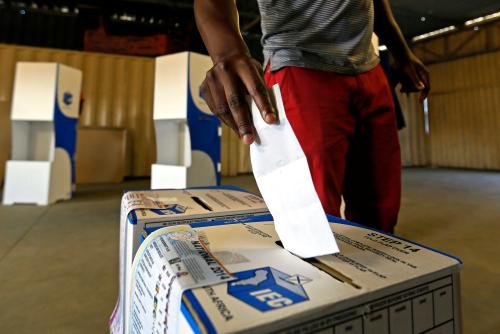
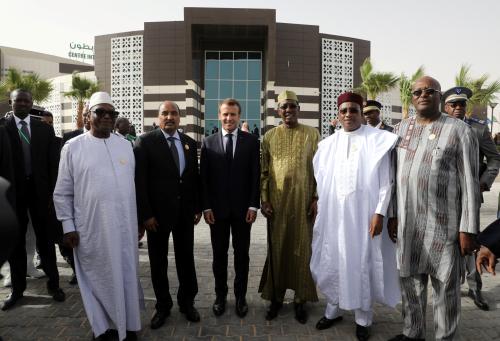
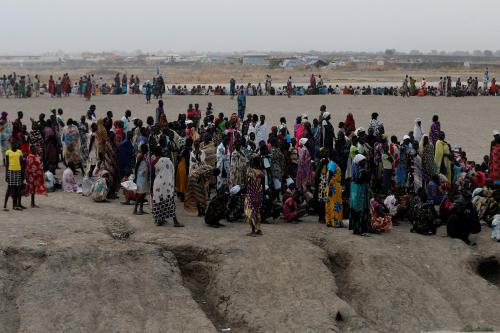

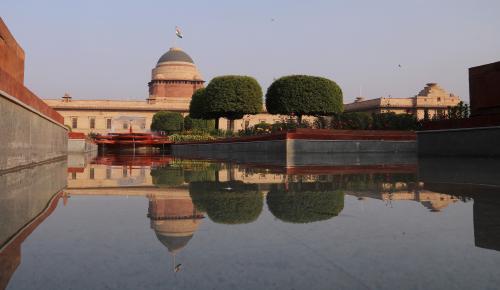
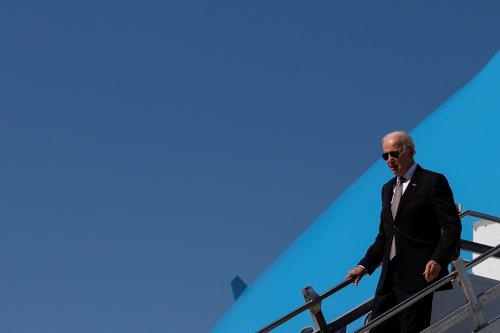
Commentary
Africa in the news: South Sudan’s ceasefire, Tanzanian mining sector’s audit, and Macron’s Mali visit
May 26, 2017